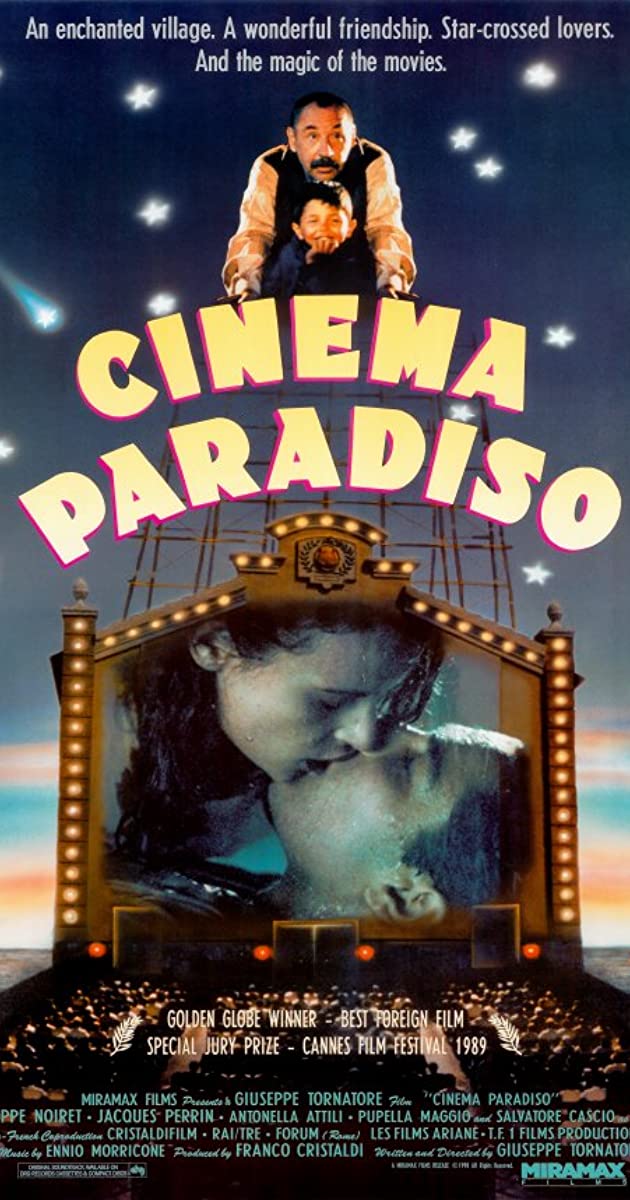By Thomas Hogge, Y12
Cinema Paradiso is an Italian film from 1988 that tells the story of boy’s love for films and the subsequent friendship he forms with the projectionist who works at the village cinema. It has been consistently ranked as one of the best movies of all time, I have heard multiple people say it was their personal favourite film and after having seen it, it isn’t hard to see why.
Cinema Paradiso is easily one of the most heartwarming and charming films I have ever seen, and had me on the verge of tears multiple times. The film tells an incredibly human story that celebrates the joys of life and as a result is an absolute delight to watch. It is really impressive how Cinema Paradiso is able to be such a life-affirming film without feeling sappy or forced at all.
From a technical standpoint, there isn’t much to say about the film except for the beautiful score by legendary film composer Ennio Morricone. Without his music, Cinema Paradiso would have never been able to achieve the emotional impact it has. Usually in films, when you have a very intense and emotional scene, you’ll have some overly dramatic music with an assortment of different stringed instruments playing in the attempts to emotionally manipulate the viewer and get them to cry or have some kind of emotional response. This happens in Cinema Paradiso, however – the one difference being that you don’t feel as though you are being manipulated; Morricone’s music is used sparingly throughout the film, and when it is played it compliments the scene so well that you almost don’t acknowledge it.
The performances in Cinema Paradiso are all superb, most notably the actor (Salvatore Cascio) who plays the main character Toto as a young child. I don’t think I’ve ever seen an actor so young give such a good performance in a film, and he actually ended up winning the BAFTA for Best Actor in a Supporting Role, being only 11 years old at the time! The actor who plays Alfredo the projectionist (Philippe Noiret) is also amazing in the film, and just does such a wonderful job of portraying a compassionate mentor character who has bountiful wisdom yet plenty of vulnerabilities. Toto may be the protagonist of Cinema Paradiso, but Alfredo really is the core of the movie.
I’ve found it a lot harder to write a critical review for Cinema Paradiso compared to every other movie I’ve reviewed. I think this is because of just how much the film’s success lies in the emotional response it’s able to generate from the viewer, and this emotional response being so hard to put into words. This film is about the magic of movies and the cinema, as someone who is deeply passionate about those notions, this film resonated with me on a level that is hard to describe. This does not at all mean, however, that only film fanatics will be able to get a strong emotional reaction from this film, it’s just that Cinema Paradiso felt very personal and I’d like to keep that feeling for myself and treasure it.
In conclusion, you should really watch this film.



